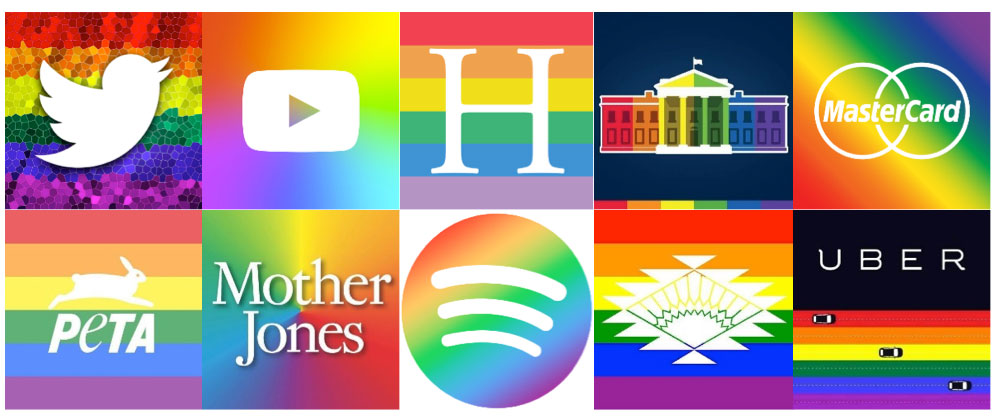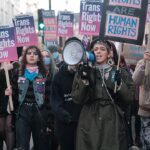Blog Post
How corporations are pushing Christians to the fringes of society
By Jonathon Van Maren
This story, from the Irish media outlet Gript, is an example of where I think we’re headed:
Barclay’s Bank’s logo these days is printed in rainbow bands, indicating its full compliance with the demands of woke culture. But not just content to re-paint its old logo, Barclay’s is prepared quite literally, to put its money where its mouth is to prove its commitment to the cause.
Specifically, it has closed the account of a customer named ‘Core Issues’, a British, Christian non-profit organization committed to ‘challenging gender confusion and upholding science and conscience’. This controversial group preach that one’s sexual preferences can be altered which is unacceptable to the bank because that is now generally considered homophobic.
In the present left orientated political culture, one that calls for the abolition of systems of inequality – including police forces – one can see how institutions like banks could be uneasy to say the least. Getting onside with progress might therefore seem like a good idea if no more is asked than the sacrifice of a few customers and some LGBT + friendly re-branding.
But banks as self-appointed, moral enforcers seems like a new departure and a very questionable one. Can a bank legally refuse service to a qualifying customer? ‘Core Issues’ is not a proscribed organization, after all, whatever one might think of their mission. If they were to become so for the offence of supporting people who want to alter their sexual orientation, then there are many other organizations and institutions that logically should be up for review too. What about sex addiction clinics and counsellors? What of clinics and counsellors involved in supporting adults and children who want to change their gender status? Is it logical to claim that people should be free to change their gender identity but not the orientation of sexual desires when they find them, for whatever reason, burdensome?
But of course the one thing we should all know by now about the ‘woke’ agenda is its complete indifference to coherence and consistency. Hate, freedom, choice can be arbitrarily good or bad, right or wrong, depending on what the cultural commissars think at any given time.
It is utterly absurd to to denounce a bakery, run by openly committed Christians, for refusing to decorate a cake with a pro-gay marriage slogan while celebrating the refusal of a bank to continue serving an established customer who never sought to force anyone into appearing to endorse what they disagreed with? But that again is to miss the point of what political correctness is all about. However, unfair and inconsistent it manifestly is when laid out like this, what it comes down to is whether something is ‘right’ or ‘wrong’. If you are ‘wrong’ you have no claim to rights. If you are ‘right’, questions about consistency become irrelevant of course.
At present, anything that promotes LGBT+ demands is deemed right. Anything that appears to question or hinder them, is ‘wrong’. Every age that claimed enlightenment has had its heretics and its anathemas, its enforcers and its inquisitions. The moral police have not been abolished. They just wear a different stripe.
And just like any bygone era, heretics are heretics until they recant. They can’t slink away and find protection in reclusive silence. Like St Thomas More, they must be forced to sign up to new truths. Anything less leaves them free to fight another day. So, plus ca change.
We might ask why banks and other institutions and corporations are leading cultural change in such a crusading way? Barclay’s were not always so onside with virtue. In 1998, they were named along with other banks in an American lawsuit to recover Jewish money taken from their French branches during the Second World War. As a result they paid out 3.6 million dollars. A decade or so later they agreed to pay almost 300 million dollars to settle criminal charges that they violated US sanctions through dealings with rogue states like Cuba, Iran and Libya. And they defied the EU in maintaining accounts for associates of Robert Mugabe on the grounds that the branch involved was incorporated in Zimbabwe. Yet, this global banking titan is turning all virtuous now and turning away a Christian group because they offer specific counselling on request to presumably a very small number of individuals who remain free to either take or leave the direction they receive.
So it’s not that Barclay’s are necessarily as wide-eyed woke as they would have us think. What is obvious, though, is that the Bank is more worried about the good opinion of woke activists than it is of the approval of either the US government or the EU. Why that might be makes for an interesting conversation
As corporations get woke (often to distract from the fact that they treat people horribly from the sweat shops to the cash registers to accumulate their wealth), I think we’re going to see them wield economic power to push Christian institutions to the fringe. We often think of persecution in physical terms—the sort of thing happening in China, Nigeria, North Korea, and elsewhere. But here in the West, in the immediate term, at least, it is far more likely to look like a slow-but-steady marginalization rather than overt persecution, with Christians being pushed to the fringes.
In my 2016 book The Culture War, I cited the example of a woman I met in Budapest who had grown up under Communism. Her parents were Christian, but if you were baptized, you couldn’t go to university. In short, she said, you had a choice: You could be Christian, or you could be successful. It’s not as if every Christian was carted off to jail, or subjected to the brutality so frequently experienced by the underground Chinese church. But through a series of restrictions, regulations, and doctrinal and political requirements, Christians were barred from full participation in society.
Here in the West, we’re seeing the corporations get in on the game. Netflix and the rest of the entertainment industry have threatened to boycott states passing pro-life or pro-family legislation. Social media giants like Twitter ban users for refusing to speak in a manner pre-approved by the transgender community. For at least a month of every year, nearly every bank kiosk, realtor, and major business features the Pride colors. Amazon refuses advertising for products they disapprove of, including Abigail Shrier’s essential new book Irreversible Damage: The Transgender Craze Seducing our Daughters.
In Canada, the conscience rights of medical professionals are constantly under threat, discouraging some to pursue medicine and leaving others under constant threat of lawsuits if they find themselves asked to provide services they find morally abhorrent. The legal field faces similar issues. University profs and instructors face impossibly difficult situations—those not named Jordan Peterson are largely subjected to the rules he so successfully flaunted. Again, this creates a chilling effect: Why pursue medicine, academia, or law if your moral values make your career a lawsuit waiting to happen? Increasingly, access to the traditionally elite professions is narrowing, and only those with the “right” values can join.
Someday soon, we could face a future where Christians in the West have been systematically pushed out of not only public life, but the mainstream of society—with corporations and financial institutions like banks doing just as much of the heavy lifting as the government.








